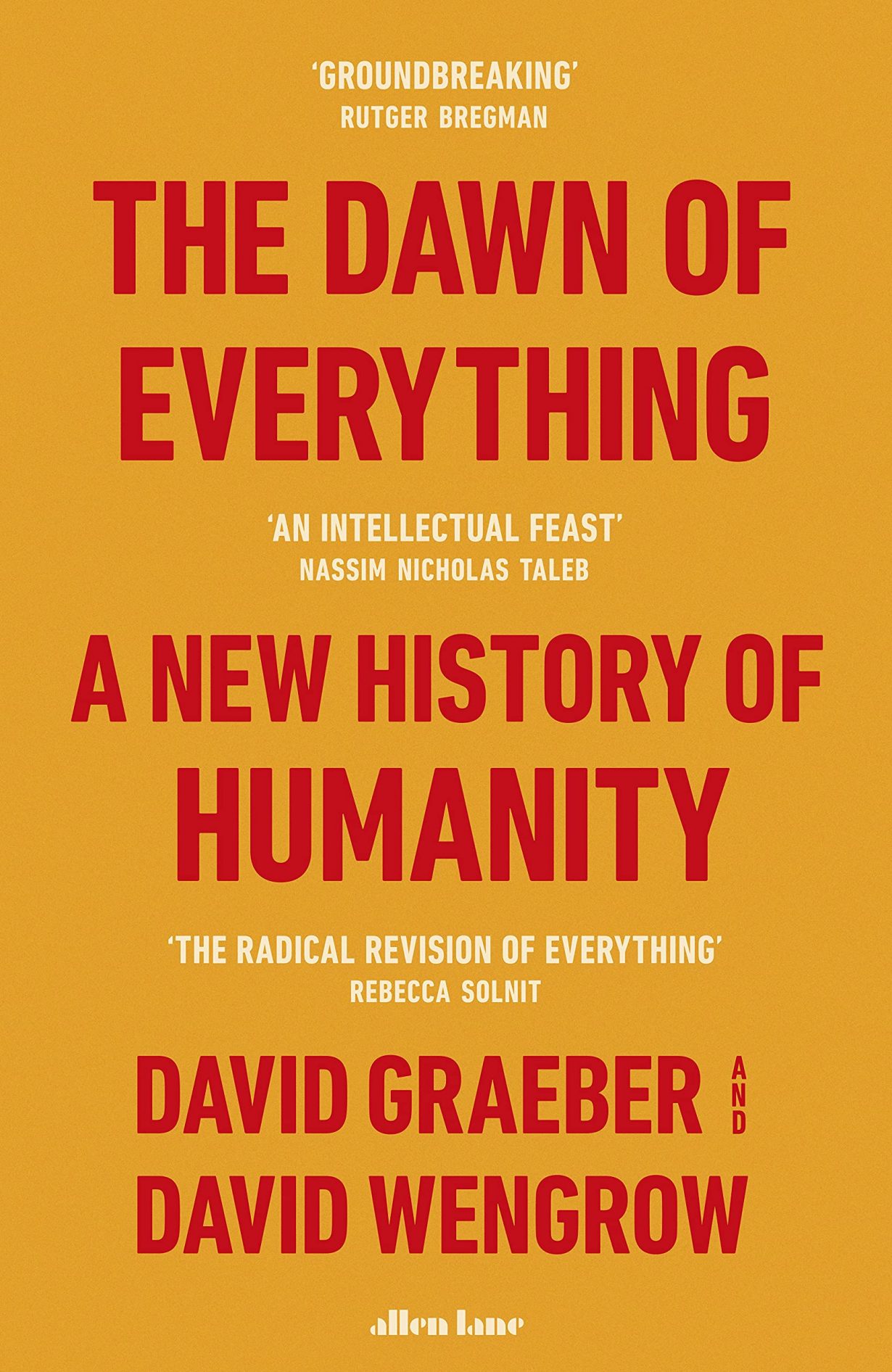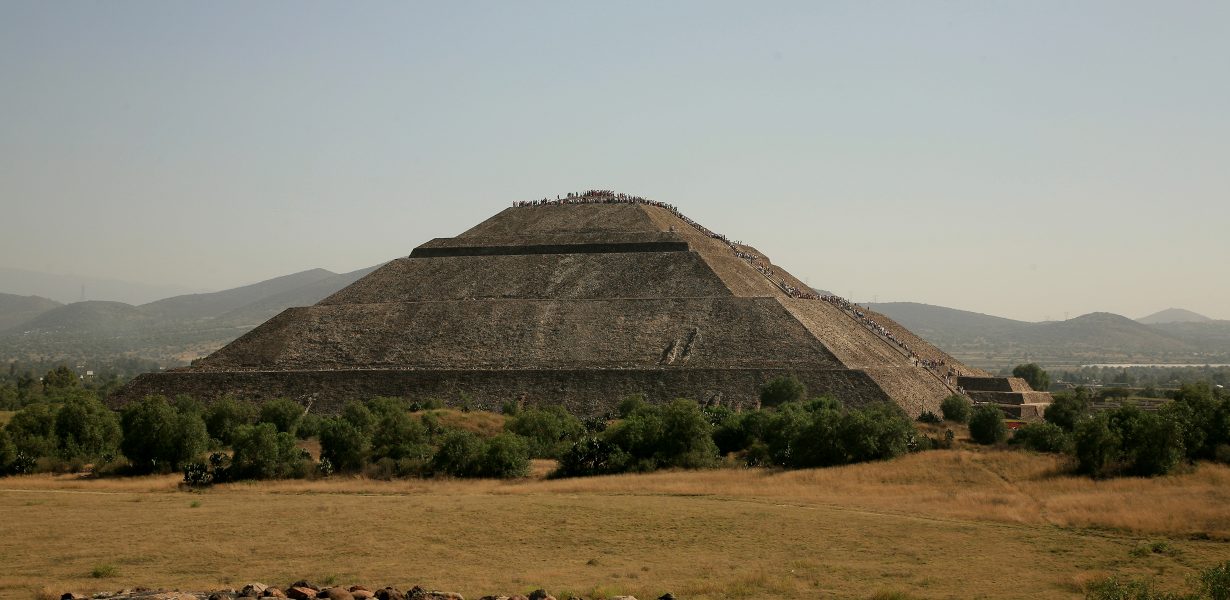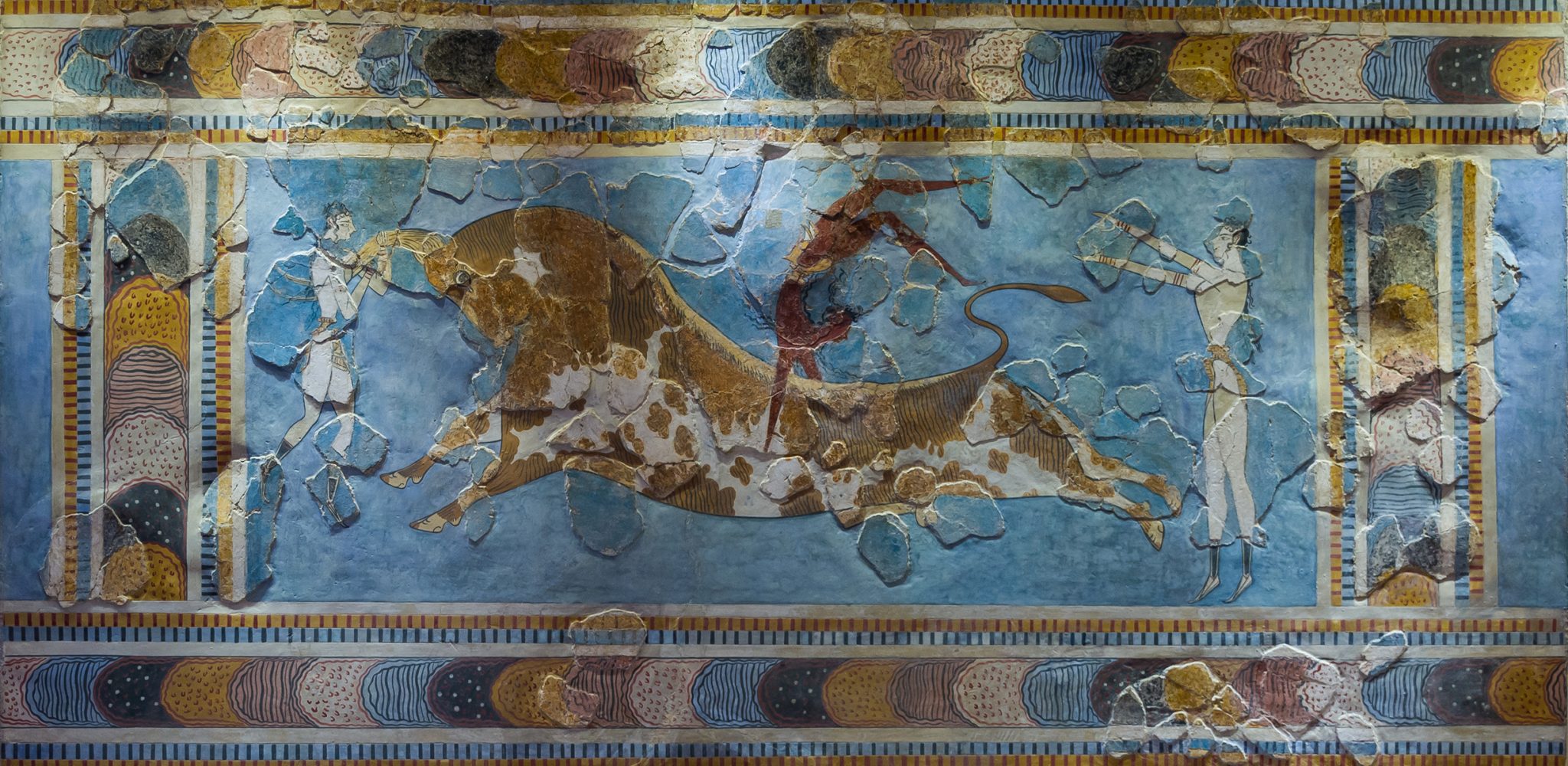Why do we assume that we are more capable of critical inquiry, free will, imagination or cognitive skill than our ancient ancestors?
In 1683 an impoverished French noble, the Baron de Lahontan, arrived in Canada with the French army. Over the next decade he interacted with the Indigenous Wendat peoples, who loved a good debate about society, religion and law. Lahontan, it seems, was regularly roasted by Kandiaronk – a particularly eloquent Wendat orator – who took the position of rational sceptic to Lahontan’s Jesuit worldview. ‘Don’t you see that, without punishment, murder and misery would be the norm,’ Lahontan would argue. ‘I find it hard to see how you lot could be more miserable than you already are,’ Kandiaronk would retort.
This and other observations that the Indigenous peoples of North America made about seventeenth-century Europe’s emphases on religion, money and obedience to kings is what the late anthropologist and activist David Graeber and the archaeologist and activist David Wengrow call ‘the indigenous critique of Europe’: one of the many understudied factors that impacted events in that small corner of the world in which, our Eurocentric curricula teach us, all History happened. As figures like Lahontan published their ‘dialogues with savages of good sense’ from the New World, debates about freedom and critical thought were stimulated in the salons of Amsterdam and Paris. These were not concepts evidently desirable or necessary in the eyes of most Europeans at the time, when Catholicism and Protestantism alike emphasised obedience as integral to both personal salvation and social order. That is not to say that encountering unimpressed Native Americans got Europeans thinking their way to the Enlightenment, but it is exemplary of the kind of long overdue – and factually supported – connections Graeber and Wengrow bring to light in The Dawn of Everything (2021).

With wry humour, flowing prose and a range of evidence, the authors cut through the unscientific claims of the Big-Books-on-Humanity-by-Big-Men genre (poking particularly at Jared Diamond, Yuval Noah Harari and Steven Pinker). The authors are by no means small men in their fields. Graeber was, until his death last year at just fifty-nine, a remarkable economic anthropologist and an intellectual leader of the Occupy Wall Street movement, while Wengrow is a widely published professor of comparative archaeology at UCL and actively involved in union organising. But Graeber and Wengrow’s approach, tone and perspective are miles away from the aforementioned ‘Big Men’. The authors analyse without any hint of Western exceptionalism, give credit generously to scholarship (mostly by women) wrongly ignored and prioritise understanding how people made and remade their everyday lives, rather than which empires, kings and states did what. The undue aggrandisement of questions related to the latter has all too often explicitly or implicitly contained a project of finding some sort of grand narrative or overall trajectory of ‘development’. This keeps circling back to, the book points out, either a Rousseauian approach to the history of humanity (that we ‘ran headlong into our chains’ from an Edenic life in the wild to accidentally developing civilisation) or the Hobbesian view (that things like states are necessary evils that create functioning societies out of the brutes we really are). Generalisations deriving from unsupported assumptions – using outdated midcentury British anthropological scholarship that swims close to eugenicist notions of racial difference as cognitive difference – are still discernible within these two stories, as the authors point out. If there is a core message to this book, it is that the linearity of both is the antithesis of the actual social and political experimentation that contemporary archaeological evidence suggests earlier humans undertook for 30,000 years.
Why, then, do we assume that we – scrolling on our phones as a handful of people with inherited wealth buy guns off each other – are more capable of critical inquiry, free will, imagination or cognitive skill than our ancient ancestors? These are biases we have only really acquired in the last 200 years. Tellingly, Graeber and Wengrow emphasise that this also happens to be the 200 years during which, under the aegis of imperial conquest and colonialism, the notion of a linear line of human ‘development’ (conveniently reaching its zenith in the white European male) was all the rage. Combine this with colonial adventurers digging up treasures in Africa and Asia to then publish broad generalisations based on what they found, and you get a whole lot of assumptions that serve imperialism well. But truth? Not so much. In examples ranging from North America to the Fertile Crescent, the authors trace how ‘primitive’ peoples often knew full well how to cultivate crops or build bigger settlements, yet sometimes chose to forage or fish instead (shockingly, they wanted more time for leisure and less time producing surplus value for some guy).

A more far-ranging and interesting line of inquiry than the when, why or how of ‘civilisation’ (as narrowly understood in terms of proximity to European social formations) is, the book asks, when did we get stuck? When did we lose the flexibility and freedoms that once characterised our social arrangements? From the Indigenous Amazonians of centuries past, who shifted seasonally between an authoritarian, hunting-oriented society and a democratic, horticultural settlement; to the European Middle Ages, where folk festivals crowned ‘Kings for a Day’; to the first-century Mexican city of Teotihuacan, which gave up monument- building for social housing; to the powerful women’s councils of Ancient Minoa, the authors present compelling examples of our age-old capacity to step outside the boundaries of our given social structures and reflect. Graeber and Wengrow do not put forth any ‘golden age’, stressing the sheer variety and hybridity of early human societies, both hierarchical and nonhierarchical. The problem, they suggest, is that we have calcified into a line of thinking that mistakes one set of rules that we currently happen to live by as the culmination of past experiments with social, economic and political organisation. The three fundamental freedoms archaeology shows were self-evident to earlier humans – to move away, to disobey and to re- arrange social ties – are now difficult to imagine. Convinced we will end up back in caves if people stop buying and selling imaginary numbers in New York and Hong Kong, we are obedient, isolated and immobile to a degree that would have baffled our ancestors.
The desire for mutual aid, justice and autonomy is not new, but humanity’s current acquiescence to power – while thinking ourselves somehow ‘freer’ than ages past – certainly is. As the authors pithily put it: we have substituted our ancestors’ play kings and real autonomy for play autonomy and real kings. Graeber, both as a scholar and an engaged citizen, leaves behind big shoes to fill. In the foreword, Wengrow shares the bittersweet news that the two had planned no fewer than three sequels. The volume’s multitudinous sources gesture to findings the authors had clearly only just begun to articulate. If he continues, seeing Wengrow cowriting sections with Indigenous, African, Asian and South American scholars, rather than going the rest of it alone, would be most welcome. For unlearning imperialism’s myth of hierarchy as a necessary ingredient for ‘civilisation’, and ‘civilisation’ as that which has the most sophisticated methods of destruction, is now a matter of planetary urgency.
David Graeber & David Wengrow, The Dawn of Everything: A New History of Humanity, 2021, Allen Lane
